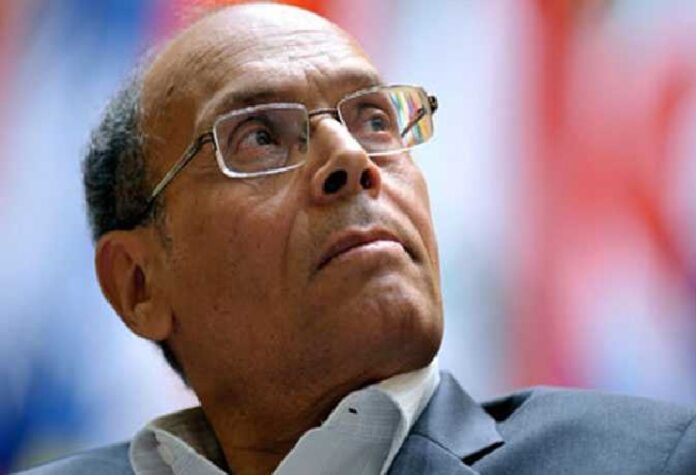It is most likely that Ennahda‘s very weak support for Marzouki in the 2014 elections is the main reason why former Tunisian President Mohamed Moncef Marzouki exploited all opportunities, before July 25th, to send private messages to Ennahda leader Rached Ghannouchi demanding his resignation from the presidency of Parliament and replacing him with someone else. He also continued his criticism of the Ennahda‘s Head even after the actions of President Kais Saied, more than two months ago, considering that he had become a burden on the revolution and hence could not be a front for the Arab Spring, and implicitly presented himself as an alternative to him.
Although Marzouki has usually moved for years within the box of supporters of political Islam in the region, especially through his constant appearances on Qatari media, he has always criticized Ghannouchi and the Ennahda movement. Therefore, the former president wants to exploit the difficult moment of his former ally in order to present himself as the mouthpiece of Kais Saied’s opponents. He also wants to take advantage of this crisis to return to the fore.
As for the Tunisians who have experienced him through and through, it is difficult to accept any future role for him, but Marzouki wants to draw the attention of those who are upset by Kais Saied’s actions outside Tunisia, especially in the West. After exhausting the Islamists’ card in general, and Ghannouchi in particular, the West needs a “secularist leader” to fill the void.
Ghannouchi is experiencing a double crisis at home, the first of which is related to the loss of his previous influence, as he played a pivotal role in the formation of various governments, and became a popular destination for those seeking positions of power. But now the situation is different, as Ghannouchi has become a thing of the past after the twenty-fifth of July. Neither Kais Saied opened the opportunity for dialogue with him, nor did the political class extend a hand to save him. As for the second crisis, it relates to the severe internal crisis within the Ennahda movement and the successive resignations rejecting Ghannouchi’s continuation at the helm of the movement, and holding him responsible for the successive failures it is experiencing.
As for Marzouki’s position towards Ghannouchi, it is due to two reasons: On the one hand, his position is related to the internal situation, especially Ennahda‘s inability to react strongly to President Kais Saied’s decisions. On the other hand, the internal crisis of the Ennahda movement and the departure of prominent leaders from it, such as Abdellatif Mekki, Samir Dilou and Mohammed ben Salem, not to mention the judiciary’s activation of the Court of Accounts’ decision, and thus the end of the Ennahda movement in its old form and Ghannouchi’s exit from the small door.
The second reason is related to the regional and international situation. Marzouki was sure that “external powers” would never again rely on the Ennahda movement in Tunisia. Thus, Marzouki determined his position from the movement and its sheikh once and for all, and he is trying in every way to present himself as a new alternative to the inside and outside alike.
Marzouki was for years an ally of the Islamic Renaissance Movement and assumed the position of President of the Republic, not by direct popular election, but by consensus obtained with the movement during the “troika” rule. His political and diplomatic orientation was clear, which was to support the Qatari-Turkish project in Tunisia and many other countries. The Ennahda movement had allied itself with the party he had founded, the Congress for the Republic and the Democratic agglomeration party, and led the government coalition after the revolution within the so-called troika between 2011 and 2013. Marzouki faced many criticisms during his tenure in power, due to his alliance with the Ennahda movement, his strong relationship with Qatar and political Islam currents, and his position on Syria.











